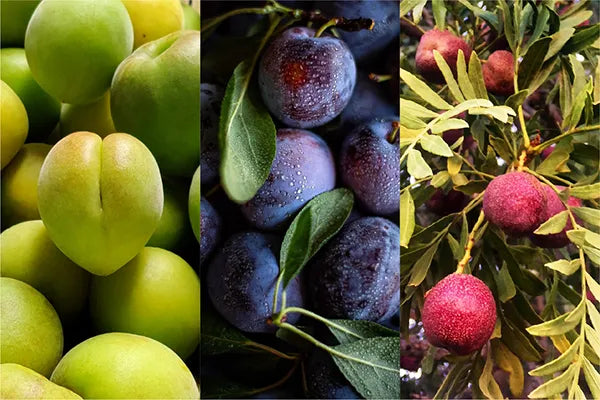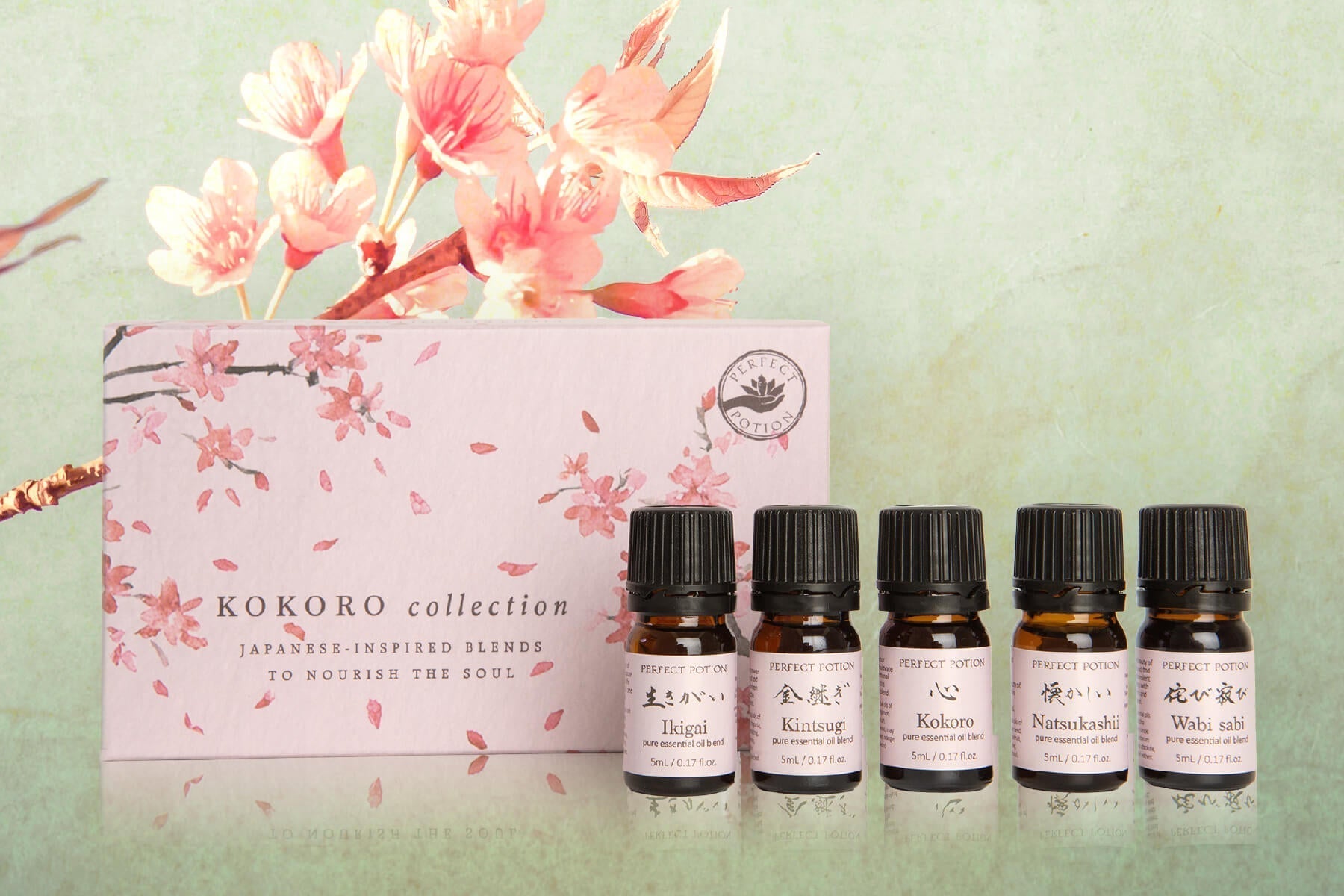Australia is well known for the diversity and uniqueness of its animal and plant life. Its geographical separation from the rest of the world has resulted in the development of many interesting and distinctive plants and animals.
In many cases, the plants from which essential oils are extracted have been part of Aboriginal pharmacopeia for thousands of years.
We are all familiar with eucalyptus and tea tree. These oils are well known for their antiseptic, antimicrobial and antiviral properties. These plants are extensively cultivated for their essential oils; however, the majority of Australia’s native flora has never been cultivated for commercial use.
These Australian native essential oils have a very diverse range of properties and incredible antimicrobial properties that will help to fight of influenza and colds.
Many of the trees from which the essential oils are made are home to Australia's unique wildlife, such as the Koala. Perfect Potion is proud to support the Australian Koala Foundation (AKF), a not-for-profit organisation that is helping to protect the Koala and its native habitat. For every purchase of the Australian Essential Oils Kit, Perfect Potion donates $1 to the Australian Koala Foundation. With these donations, we have contributed over $10,000 to AKF to date.
DISCOVER OUR AUSTRALIAN COLLECTION
Please enjoy more information about the incredible Australian Essential Oils below, some of which are featured in the Australian Essential Oils Kit.
 |
Eucalyptus, blue malleeThere are more than 700 species of eucalyptus. However, the essential oil distilled from the leaves of Eucalyptus polybractea is the most common and popular. It is commonly found in Western New South Wales and Victoria. Characteristics: Blue mallee eucalyptus oil has a strong, sweet, camphoraceous and fresh odour. Chemical composition: The essential oil obtained from Eucalyptus polybractea is rich in 1,8-cineole. The 1,8-cineole content can be as high as 92%. Other constituents found in the oil include α-pinene (1%), limonene (1%), p-cymene (2%), β-pinene (0.2%) and sabinene (0.2%), terpinene-4-ol (0.5%), α-terpineol (0.4%) and carvone (0.2%). Aromatherapy uses: Blue mallee eucalyptus oil has excellent analgesic, antiseptic, anti-viral and expectorant properties. It may be used in a massage oil for the temporary relief of headache, arthritis, rheumatism and muscular aches and pain. It is excellent for the temporary relief of respiratory problems such as coughs, colds, flu, sinusitis and mucous congestion. The fresh scent of blue mallee eucalyptus is energising, balancing and purifying. It will help to revive your spirits and dispel feelings of melancholy. Blending: Blue mallee eucalyptus oil will blend well with essential oils such as basil, citronella, clove, any of the other eucalyptus oils, fragonia, frankincense, kunzea, geranium, ginger, lavender, lemon, lemongrass, lemon myrtle, sweet marjoram, peppermint, pine, rosemary, thyme and tea tree. Safety: Blue mallee eucalyptus oil is non-toxic, non-irritant and non-sensitising. |
 |
FragoniaFragonia oil is a relatively new essential oil steam distilled from a small shrub that grows in Western Australia called Agonis fragrans. It is also referred to as “course tea tree”. Characteristics: Fragonia has a delicate, woody and refreshing odour. Its unique chemical composition accounts for this interesting odour profile. Chemical composition: Fragonia oil has a unique blend of monoterpene alcohols. A typical analysis of Agonis fragrans essential oil is as follows: α-pinene (27%), 1,8-cineole (28%), linalool (11%), terpineol (3%), α-terpineol (6.2%), myrtenol (3.5%), α-humulene (1%), β-caryophyllene (<1%), viridiflorene (<1%), globulol (<1%). Aromatherapy uses: Fragonia oil is very gentle on the skin and can be used at very high concentrations, or neat, for the treatment of a range of topical infections, such as tinea, and viral infections, such as herpes. It has gentle expectorant properties and it appears to boost the immune system. Blend with eucalyptus for colds and flu. It has excellent analgesic and anti-inflammatory properties. Use in a massage oil for the relief of minor muscular and joint pain. The scent of fragonia is said to induce a profound feeling of calm and tranquility. Fragonia gently helps to remove emotional scars to heal lingering emotional hurt and unresolved emotional issues. Blending: Fragonia oil will blend well with essential oils such as bergamot, German and Roman chamomile, all the eucalyptus oils, frankincense, geranium, kunzea, lavender, lemon, neroli, sweet orange, palmarosa, rosemary, rose otto, sandalwood, tea tree and lemon-scented tea tree. Safety: Fragonia oil is considered non-toxic, non-irritant and non-sensitising. |
 |
Tea treeTea tree oil is water or steam distilled from Melaleuca alternifolia. Tea tree is found in the warmer, east coast of Australia. It naturally prefers swampy areas, drainage lines and river banks. Most of the oil available nowadays is from commercial plantations. Characteristics: Tea tree oil has a warm, spicy, aromatic odour. Chemical composition: A typical chemical analysis of tea tree is reported as follows: α-pinene (2.1%), β-pinene (0.4%), sabinene (0.2%), myrcene (0.4%), α-phellandrene (0.8%), α-terpinene (7.1%), limonene (1.4%), 1,8-cineole (3.0%), δ-terpinene (15.7%), p-cymene (6.2%), terpinolene (3.4%), linalool (0.2%), terpinen-4-ol (45.4%), α-terpineol (5.3%). Aromatherapy uses: Tea tree oil is well known for its excellent antimicrobial, antibacterial and antiviral properties. It can be used as an inhalation for the temporary relief of respiratory problems such as coughs and colds, flu, sinusitis and mucous congestion. Tea tree also provides temporary relief from the symptoms of eczema, cold sores, and rashes. It will assist and promote the healing of wounds and minor cuts and soothe insect bites. Blending: Tea tree oil will blend well with essential oils such as bergamot, citronella, all the eucalyptus oils, fragonia, kunzea, lavender, lemon, lemon myrtle, lemon scented tea tree, lemongrass, sweet orange, peppermint, pine, rosemary, rose otto, sandalwood, thyme. Safety: Tea tree oil is non-toxic, non-irritant and possibly sensitising to some individuals. |





